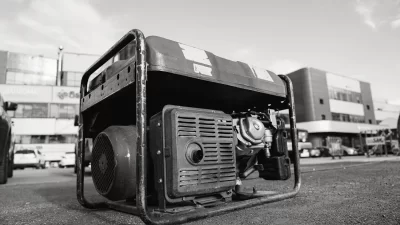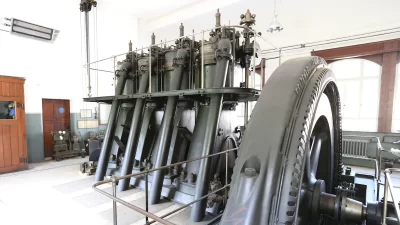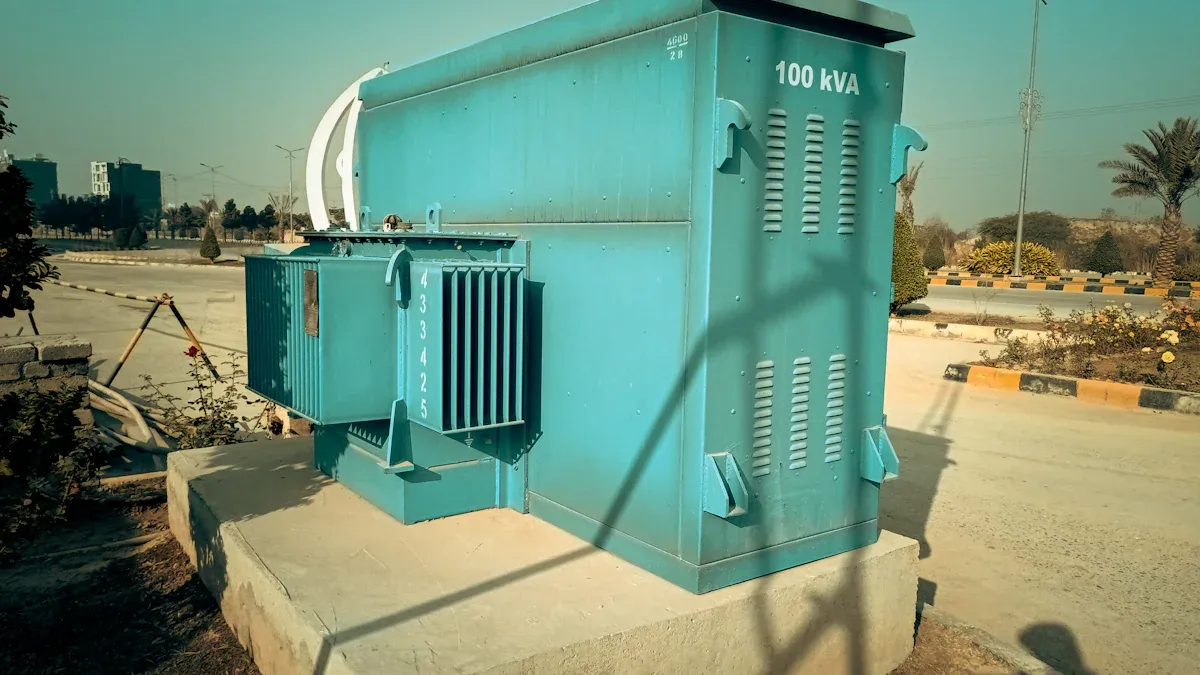
You can secure surplus industrial generators at substantial discounts by targeting bulk deals from trusted suppliers. When you buy in larger quantities, you gain access to significant cost savings, a wider selection, and the ability to customize units for your operations.
Bulk purchasing provides flexibility for your business, supports a reliable supply chain, and ensures long-term investment value.
Start your search by comparing reputable wholesalers, exploring online marketplaces, and contacting manufacturers directly to maximize your savings.
Key Takeaways
Buying industrial generators in bulk saves money and gives you access to a wider selection and customization options.
Surplus generators come from overstock, canceled projects, or equipment upgrades and often offer high quality at lower prices.
Bulk purchases ensure better inventory availability and faster delivery, helping your business run smoothly without delays.
Negotiating with suppliers on volume discounts, long-term contracts, and bundled orders can unlock significant savings.
Always inspect generators carefully, check warranty details, and confirm certification to protect your investment and ensure reliability.
Use online marketplaces, surplus dealers, auctions, manufacturers, and local distributors to find the best deals and support.
Timing your purchase around sales cycles, surplus releases, and off-season periods can help you get the best prices.
Streamline your procurement by building strong supplier relationships, using advanced tools, and monitoring key inventory metrics.
Surplus Industrial Generators
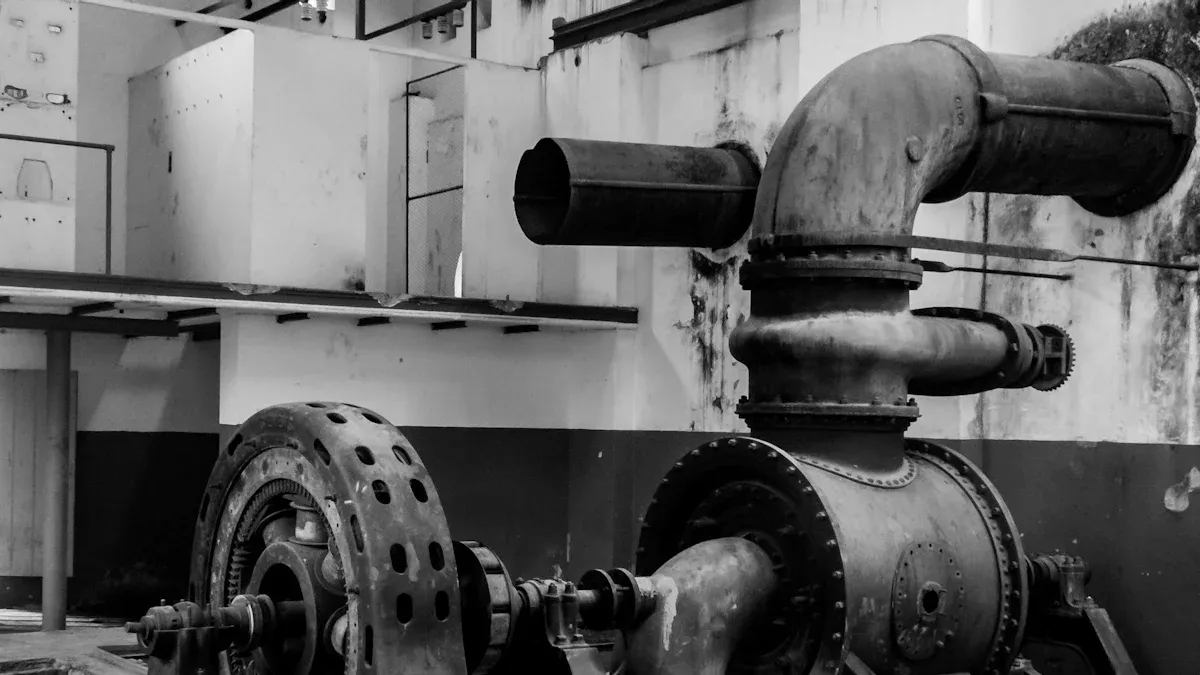
What Are Surplus Generators
Surplus generators refer to power units that suppliers or businesses no longer need for their original purpose. You can find these units as new, unused, or lightly used equipment. Most surplus generators meet minimum functional requirements, which gives you flexibility and cost efficiency. These units often come from reputable brands and maintain high standards for reliability and performance.
You will notice that surplus generators typically feature robust diesel engines, advanced emission controls, and fast start-up times. Many models include self-diagnostic capabilities, acoustic enclosures for noise reduction, and integration with automatic transfer switches (ATS) and building management systems. These features ensure you receive dependable backup or continuous power for your operations.
Tip: Always check for compliance with local emission standards and confirm that the generator includes all necessary components, such as fuel transfer systems and control panels.
Why Surplus Units Are Available
You may wonder why surplus generators become available in the first place. Several factors drive this supply:
Manufacturers sometimes produce more units than needed, resulting in overstock.
Large projects may get canceled or delayed, leaving new generators unused.
Businesses upgrade their equipment, making existing units available for resale.
These situations create opportunities for you to purchase high-quality industrial generators at a fraction of the original cost. Surplus units often come with thorough documentation, recent maintenance records, and the option for start-up testing, including load bank tests at various levels.
Typical Sources
Manufacturer Overstock
Manufacturers often build extra inventory to meet projected demand or fulfill large contracts. When demand falls short or specifications change, you can access these overstocked generators at discounted rates. These units are usually new and meet the latest technical and environmental standards.
Project Cancellations
Major construction, infrastructure, or industrial projects sometimes get canceled or postponed. In these cases, you can find surplus generators that have never been installed or used. These units offer you a cost-effective solution with minimal wear and full manufacturer support.
Equipment Upgrades
Businesses in sectors like data centers, oil and gas, and manufacturing frequently upgrade their power systems. When they replace existing generators with newer models, you gain access to well-maintained surplus units. These generators often feature recent technology, including four-cycle diesel engines for lower emissions and improved fuel efficiency.
Metric | Details |
|---|---|
Global Generator Sales Market Size (2023) | |
Projected Market Size (2024) | USD 21.8 Billion |
Projected Market Size (2032) | USD 37.5 Billion |
CAGR (2024-2032) | 7.0% |
Leading Power Rating Segment | Above 750 kVA |
Largest Fuel Type Segment | Diesel |
Highest Revenue Application | Continuous Load |
Key End-User Segments | Residential, Mining, Oil & Gas, Construction, Manufacturing, Pharmaceuticals, Commercial, Telecom, Utility, Data Center |
Regional Coverage | North America, Europe, APAC, Middle East & Africa, LATAM |
You operate in a market where industrial generators play a critical role across many industries. Diesel models remain the preferred choice for their reliability and performance. As you explore surplus options, you benefit from a growing global market and a wide range of technical specifications.
Bulk Buying Advantages
Inventory Availability
When you purchase generators in bulk, you gain access to a broader and more consistent inventory. Suppliers often prioritize bulk buyers, ensuring you receive the units you need without long delays. You can monitor and improve your inventory availability by tracking key performance indicators. These metrics help you evaluate supplier reliability and maintain a steady supply for your operations.
Rate of Return: Shows the percentage of products returned, reflecting quality and customer satisfaction.
Revenue per Unit & Cost per Unit: Measures profitability for each item.
Gross Margin per Product: Identifies which products deliver the best returns.
Gross Margin Return on Investment (GMROI): Assesses profit relative to your inventory investment.
Time to Receive: Tracks how quickly you get your order after placing it.
Put Away Time: Measures how fast you can store received goods, impacting readiness.
Supplier Quality Index: Evaluates supplier reliability and product quality.
Lead Time: Indicates the time from order initiation to product availability.
Service Level: Shows the probability of meeting demand without running out of stock.
Inventory Turns: Reveals how quickly inventory moves through your operation.
Stock-Outs: Tracks the percentage of requests where the item is unavailable; a low rate (below 2%) is ideal.
Vendor-Managed Inventory: Measures the portion of inventory managed by suppliers, helping optimize stock levels.
Inactive Stock: Identifies items unused for over a year, signaling potential overstock.
Tip: Regularly review these metrics to ensure you maintain high service levels and avoid costly stockouts or overstock situations.
Customization Options
Bulk orders often unlock a range of customization options that single-unit purchases cannot match. You can tailor generators to your specific operational needs, branding, and site requirements. Suppliers offer flexible configurations to help you maximize efficiency and brand visibility.
Customization Category | Options Offered |
|---|---|
Frequency Configuration | 50Hz or 60Hz |
Unit Types | Open, Silent, Containerised |
Fuel Tank Sizes | Custom sizes available |
Additional Systems | ATS panels, Load transfer systems |
You can also request:
Custom color schemes to match your company branding
Logos applied directly to the units
Special packaging for easier handling or storage
Graphic customization for unique identification
Note: Discuss your customization needs early in the procurement process. This ensures suppliers can meet your specifications and deliver on time.
Streamlined Procurement
When you purchase generators in bulk, you gain the advantage of a streamlined procurement process. This approach simplifies every step, from supplier selection to final delivery. You can make faster decisions, reduce administrative workload, and ensure your business receives the right equipment on time.
A streamlined procurement process starts with gathering comprehensive supplier information. You can compare vendors quickly, assess their reliability, and select those who meet your quality and compliance standards. Enhanced market knowledge helps you make informed decisions and avoid costly mistakes. Early risk mitigation becomes possible when you assess suppliers before committing to large orders.
By collaborating closely with suppliers, you reduce lead times and improve demand forecasting. Transparent communication ensures that both you and your suppliers stay aligned, which minimizes delays and unexpected shortages.
You also benefit from advanced tools and analytics. Supplier scorecards and shared forecasting platforms improve accountability and keep your inventory ready for any demand spikes. Predictive analytics help you optimize inventory levels, reduce emergency orders, and strengthen your negotiation position. For example, a commercial aerospace OEM used predictive analytics to cut component shortages by 25%, which improved supply chain resilience.
Just-in-time (JIT) procurement offers another advantage. When you combine JIT with strong supplier collaboration, you lower holding costs, speed up replenishment, and minimize waste. A mid-sized aerospace manufacturer achieved a 25% reduction in inventory costs and a 15% improvement in on-time delivery by using JIT and advanced analytics.
Modern procurement platforms, AI-driven analytics, and blockchain technology further enhance your process. These tools automate document processing, verify compliance, and reduce errors. Delta Air Lines uses AI for predictive maintenance, which improves operational efficiency and regulatory compliance. GE Aviation’s blockchain system improved parts tracking and released over $10 million in cash, demonstrating real cost savings and efficiency.
You also gain strategic advantages by diversifying your supplier base and building long-term partnerships. This approach mitigates risks, improves supply chain stability, and supports your sustainability goals. Companies like Raytheon Technologies and Boeing have adopted these strategies to ensure continuity and quality control.
Key benefits of streamlined procurement include:
Early risk mitigation and cost optimization
Faster vendor evaluation and reduced administrative burden
Stronger supplier partnerships and increased transparency
Enhanced compliance and support for sustainability
Tip: Use advanced procurement tools and maintain open communication with your suppliers to maximize efficiency and minimize risks when buying in bulk.
Where to Buy
Online Marketplaces
You can find a wide selection of industrial generators on online marketplaces. These platforms offer convenience, transparency, and access to both new and surplus units. You can compare prices, specifications, and seller ratings in one place. Popular platforms include:
eBay: You can browse listings from dealers and private sellers. Many listings feature detailed photos, maintenance records, and return policies. You can filter by brand, power rating, and condition.
GovDeals: This platform specializes in government surplus. You can find well-maintained generators from municipal, state, and federal agencies. Listings often include inspection reports and clear documentation.
Absolute Generators: This site focuses on commercial and industrial power solutions. You can access a curated inventory, including brands like Cummins, Caterpillar, and Baldor. The platform provides technical support and delivery options.
Tip: Always check seller ratings and review return policies before making a purchase. Reliable sellers provide clear warranty terms and detailed product descriptions.
Online marketplaces allow you to compare multiple brands, such as Fermont, Libby, Dewey, INI Power Systems, and Lombardini. You can use advanced search filters to narrow your options by fuel type, output, and location. Many platforms offer buyer protection programs, which help you reduce risk.
Surplus Dealers
Surplus dealers specialize in sourcing and reselling industrial generators that come from manufacturer overstock, project cancellations, or equipment upgrades. You can benefit from their expertise in evaluating, refurbishing, and certifying used and surplus units. These dealers often maintain strong relationships with manufacturers and large end-users, which gives you access to exclusive inventory.
Key advantages of working with surplus dealers:
Expert Guidance: Dealers help you select the right generator for your application. They can recommend models based on your power requirements and site conditions.
Inspection and Testing: Reputable dealers perform thorough inspections and load bank tests. You receive documentation that verifies performance and compliance.
Bulk Discounts: Dealers often offer volume pricing and flexible payment terms for bulk orders.
Customization: Many dealers provide options for branding, packaging, and configuration.
Dealer Name | Brands Offered | Services Provided | Delivery Options |
|---|---|---|---|
Generator Source | Cummins, Caterpillar | Inspection, Refurbishing | Nationwide Shipping |
Swift Equipment | Baldor, Libby | Load Testing, Warranty | Local Pickup, Freight |
Worldwide Power | Fermont, Lombardini | Customization, Support | International |
Note: Request recent maintenance records and certification documents before finalizing your purchase. This ensures you receive reliable equipment that meets your operational needs.
Auctions
Auctions present another effective channel for acquiring industrial generators at competitive prices. You can participate in live or online auctions, where surplus units from government agencies, utilities, and corporations become available. Auction inventory changes frequently, so you can find unique models and rare configurations.
Popular auction platforms include:
GovDeals: Features government and municipal surplus, often with low starting bids.
Ritchie Bros. Auctioneers: Offers large-scale industrial equipment auctions, including generators from major brands.
BidSpotter: Hosts online auctions for commercial and industrial assets, with real-time bidding.
You can preview auction lots, review inspection reports, and set maximum bids. Many auctions provide flexible payment and pickup options. Some offer delivery services for bulk purchases.
Alert: Review auction terms carefully. Some auctions sell equipment “as-is,” with no returns or warranties. Inspect units in person when possible, or request detailed photos and service records.
Auctions can help you secure industrial generators below market value, especially if you monitor listings and act quickly. You can also leverage bulk bidding to negotiate better rates on multiple units.
Direct from Manufacturers
You can secure some of the best deals on Industrial Generators by purchasing directly from manufacturers. This approach gives you access to new and surplus inventory, often at prices lower than those offered by third-party sellers. Manufacturers like Cummins, Caterpillar, Baldor, and Lombardini maintain strict quality control, ensuring each unit meets your operational standards.
When you work directly with a manufacturer, you benefit from:
Quality control processes that guarantee reliable performance.
Customization options tailored to your site and power requirements.
Fast turnaround times for urgent projects.
Expert pre-sales support, including technical recommendations.
Comprehensive after-sales support, such as warranties and repair services.
Direct access to technical documentation and compliance certificates.
Manufacturers often have decades of experience and established reputations. You can request units with specific features, such as advanced emission controls or custom enclosures. Many manufacturers also offer surplus units from canceled orders or overstock, which can further reduce your costs.
Tip: Contact the manufacturer’s sales team to discuss your project needs. Ask about available surplus inventory, customization options, and delivery timelines. Request written quotes and compare warranty terms before making a decision.
Local Distributors
Local distributors provide another reliable source for Industrial Generators. These businesses maintain regional inventories and offer personalized service. You can visit their facilities to inspect equipment in person, which helps you verify condition and suitability for your application.
Key advantages of working with local distributors include:
Benefit | Description |
|---|---|
Immediate Availability | Access to in-stock units for quick deployment |
Local Support | On-site technical assistance and maintenance services |
Flexible Logistics | Easier coordination for delivery, installation, and returns |
Relationship Building | Ongoing support and priority access to new inventory |
Distributors often partner with leading brands such as Fermont, Libby, Dewey, and INI Power Systems. They can help you navigate local regulations and ensure compliance with emission standards. Many distributors offer trade-in programs, allowing you to upgrade your fleet while managing costs.
Note: Always review the distributor’s return policy and warranty coverage. Schedule an on-site inspection or request a demonstration to confirm the generator’s performance before finalizing your purchase.
Industrial Generators Bulk Discounts
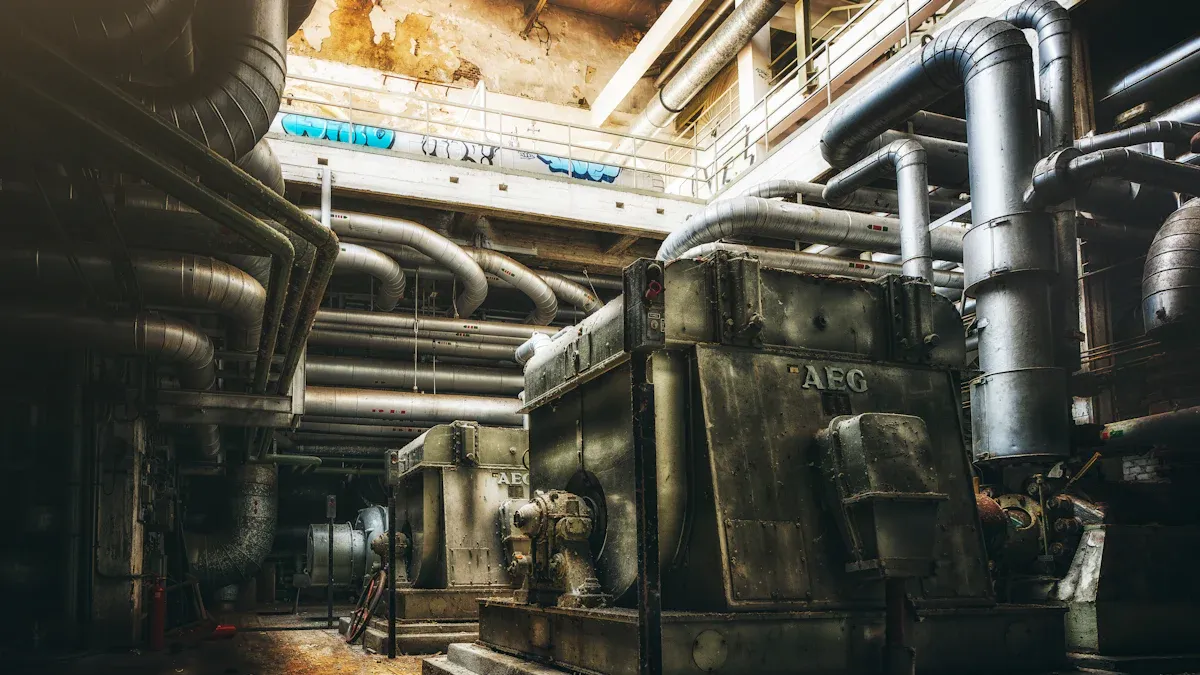
Negotiation Tips
You can unlock significant savings on Industrial Generators by mastering negotiation strategies tailored for bulk purchases. Suppliers respond positively when you approach them with a clear plan and a willingness to commit to larger orders. Consider these proven tactics:
Leverage your order volume to request better prices and volume discounts. Suppliers often reserve their best rates for buyers who purchase in bulk.
Bundle multiple products or accessories with your generator order. This increases your bargaining power and can help you secure more favorable terms.
Negotiate long-term contracts to lock in pricing and ensure a stable supply. Suppliers value repeat business and may offer fixed rates for extended agreements.
Build strong relationships with your suppliers. Consistent communication and timely payments foster trust, which can lead to preferential pricing and priority service.
Consolidate your supplier base. By focusing your purchases with fewer vendors, you concentrate your buying power and can negotiate lower prices.
Request special pricing agreements that fix costs over a set period. This approach provides cost predictability and shields you from market fluctuations.
Case Study: XYZ Company achieved a 15% discount on packaging materials by bundling purchases and securing a three-year fixed price contract. This strategy delivered both immediate and long-term cost reductions.
You can apply these negotiation techniques to your next generator procurement to maximize your budget and strengthen your supplier relationships.
Supplier Terms
Before you finalize any bulk purchase, you must review and clarify all supplier terms. Transparent agreements protect your interests and ensure a smooth transaction. Focus on these key areas:
Specify all terms and conditions in your purchase order, including return policies and any negotiated discounts. Clear documentation prevents misunderstandings and disputes.
Confirm that your supplier explicitly states any volume discounts in writing before you complete the order. Verbal agreements can lead to confusion or missed savings.
Establish a clear return policy. You need to know how the supplier handles damaged, defective, or incorrect goods. This protects you from unexpected losses.
Include all negotiated terms in your purchase order. Written agreements provide legal protection and ensure both parties remain accountable.
Suppliers often offer discounts for bulk orders, but you must clarify these terms before you commit. Standard purchase order templates, such as those used by Cleaver-Brooks, include general provisions but may not detail volume discounts or return policies. Always request these details in writing.
Tip: Review every contract carefully. Ask your supplier to confirm all discounts, warranties, and return procedures in the final agreement.
Group Purchasing
You can further increase your savings by participating in group purchasing programs. These arrangements allow multiple buyers to combine their orders, increasing total volume and unlocking deeper discounts from suppliers. Group purchasing works well for businesses with similar needs or those operating within the same industry.
Group Purchasing Benefits | Description |
|---|---|
Increased Bargaining Power | Larger combined orders attract better pricing |
Shared Expertise | Members share knowledge on suppliers and specs |
Lower Administrative Costs | Centralized negotiation reduces paperwork |
Access to Exclusive Deals | Suppliers may offer special terms to groups |
You can join industry associations, procurement cooperatives, or online buying groups to access these benefits. Many organizations facilitate group purchases for Industrial Generators, helping members secure better terms and streamline the buying process.
Note: When joining a group purchase, review the agreement to ensure it meets your operational requirements. Confirm delivery timelines, payment terms, and warranty coverage for all units included in the order.
Timing Your Purchase
You can maximize your savings by choosing the right time to buy. Timing plays a critical role in bulk procurement. Suppliers often adjust prices based on market demand, inventory levels, and seasonal trends. You should monitor these factors to identify the best opportunities.
1. Watch for End-of-Quarter and End-of-Year Sales
Many suppliers aim to meet sales targets by the end of each quarter or year. You can take advantage of this by negotiating during these periods. Suppliers may offer deeper discounts, free shipping, or added incentives to close deals quickly.
2. Track Inventory Surplus Cycles
Surplus inventory often peaks after large projects finish or when manufacturers release new models. You should contact suppliers right after these events. This timing gives you access to the best selection and the lowest prices.
3. Leverage Off-Season Buying
Demand for generators rises during storm seasons or periods of high construction activity. You can secure better deals by purchasing during off-peak times. Suppliers may have excess stock and more flexibility on pricing.
Timing Strategy | Potential Benefit | When to Act |
|---|---|---|
End-of-Quarter/Year | Extra discounts, incentives | March, June, September, December |
Post-Project Completion | Access to surplus, lower prices | After major project wrap-ups |
Off-Season | Lower demand, better pricing | Late winter, early spring |
Tip: Set calendar reminders for key industry events and supplier sales cycles. This habit helps you stay ahead of the market and plan your purchases strategically.
4. Monitor Market Trends and Announcements
Suppliers sometimes announce price increases due to rising material costs or regulatory changes. You should act before these changes take effect. Early action can lock in current rates and protect your budget.
5. Negotiate for Added Value
If you cannot secure a lower price, ask for value-added incentives. Suppliers may offer free shipping, extended warranties, or complimentary accessories. These extras can increase your total savings.
Free shipping on bulk orders
Extended warranty coverage
Complimentary installation or training
Note: Always confirm the expiration date of any special offer. Act promptly to avoid missing out on limited-time deals.
You can achieve the best results by combining these timing strategies with strong negotiation skills. Careful planning ensures you get the right equipment at the lowest possible cost.
Before You Buy
Inspection
You must inspect every generator before finalizing your purchase. A thorough inspection ensures you receive reliable equipment and avoid costly surprises. Industry benchmarks recommend a structured approach to generator inspections:
Before Use: Always perform a quick visual check. Look for leaks, overheating, and ensure there is enough fuel. Run a test if the generator has not operated recently.
Monthly Inspections: Check oil and fuel levels. Test alignment and inspect internal and auxiliary components for wear or damage.
Annual Inspections: Examine all major parts, including air filters, oil reservoirs, exhaust systems, wiring, and casings. Conduct load tests and vibrational analyses to assess performance.
When Performance Declines: If you notice shorter run times, increased power consumption, overheating, or vibration, schedule a detailed inspection to identify issues.
You should also check fluid levels, clean debris, test batteries, and change filters regularly. Certified professionals should handle servicing. Manufacturer checklists provide valuable guidance for maintenance routines.
Tip: Increase inspection frequency if you use generators in harsh environments or for continuous operations.
Warranty
Warranty coverage protects your investment and reduces long-term risk. You need to understand the details of each warranty before you buy. Review the following aspects:
Details | |
|---|---|
Coverage Duration (Target Power) | Shorter of 12 months or 1,000 hours from installation, or 18 months from dispatch |
Coverage Scope (Target Power) | Excludes engines and alternators |
Manufacturer Warranty | Covers faulty materials and workmanship; excludes wear and tear or misuse |
Used/Reconditioned Generators | Sold without any warranty |
Warranty Administration | Managed by equipment importer, main distributor, or manufacturer |
You should also consider these points:
Warranty length matters. Some suppliers offer extended coverage up to ten years.
Comprehensive coverage for parts and labor helps you avoid unexpected repair costs.
For continuous-use generators, ensure the warranty covers critical components like alternators and engines.
Strong warranties minimize future expenses and support reliable operation, especially for mission-critical sites.
Note: Always request written warranty terms and clarify what is included or excluded.
Shipping
Shipping logistics can impact your project timeline and budget. You need to confirm all shipping details before placing your order. Reliable suppliers provide clear delivery schedules, tracking information, and insurance options. Ask about the following:
Estimated delivery times and available shipping methods
Packaging standards to prevent damage during transit
Insurance coverage for loss or damage
Responsibilities for unloading and site delivery
You should coordinate with your supplier to schedule delivery at a time that fits your installation plan. For bulk orders, confirm if the supplier offers consolidated shipping or free freight incentives. Always inspect the equipment upon arrival and document any visible damage immediately.
Alert: Delays or mishandled shipments can disrupt your operations. Choose suppliers with proven logistics experience and responsive customer support.
Certification
You must verify certification before you purchase any surplus generator. Certification ensures that the equipment meets strict safety, performance, and environmental standards. Certified generators give you confidence in their reliability and help you comply with local regulations.
One of the most important standards is ISO 8528-6:2005. This standard defines the test methods and acceptance tests for engine-driven generating sets. It covers different power ratings, such as Emergency Standby Power, Prime Power, Limited-Time Running Power, Continuous Power, Data Center Power, and Maximum Power for low-power sets. Manufacturers perform these functional and acceptance tests at the factory. The process ensures that each generator meets the required performance parameters, including sound, vibration, and temperature control. Certification under ISO 8528-6:2005 provides a common basis for comparing generator ratings. You can trust that certified units have passed rigorous testing before reaching the market.
In North America and international markets, the CSA Group plays a leading role in certifying generators. The CSA Group covers a wide range of standards and protocols. These include the CAN/CSA C22.2 series, UL 1004 Series, UL 2111, NFPA 496, and several IEC standards. Certification from the CSA Group signals that a generator meets quality and compliance requirements for market access. The group also offers energy efficiency testing accredited by the Department of Energy (DOE) and Natural Resources Canada (NRCan).
Here is a summary of the certification standards and services relevant to surplus generators:
Certification Body | Standards and Protocols Covered | Notes |
|---|---|---|
CSA Group | CAN/CSA C22.2 series (No. 25, 30, 77, 100, 145, 213), UL 1004 Series, UL 2111, UL/ISA/CSA C22.2 No. 60079 series, NFPA 496, IEC 60034-5, IEC 60079 series, IEC 80079 series | Covers motors, generators, turbines; includes energy efficiency testing accredited by DOE and NRCan |
Energy Efficiency Standards | 10 CFR 431 subpart X, CAN/CSA C390-10, CAN/CSA C747-09, IEEE 112-2004 | Applicable for electric motors including small motors |
Product Categories Certified | AC Three-phase Induction Motors, Appliance Motors, Electric Motors, Permanent Magnet Synchronous Motors, Electronically Commutated Motors, Portable and Stationary Engine-driven Generators, Small and Large Generators, Gas Turbines | Certification signals quality and compliance for market access |
Services Offered | Testing, Certification, Marks & Labels, Value-Added Services | Supports compliance and market entry |
You should always request certification documents from your supplier. These documents confirm that the generator has passed all required tests and meets industry standards. Certified equipment helps you avoid legal issues and ensures safe operation at your site.
Tip: Never skip the certification check. Certified generators protect your investment and simplify future inspections or audits.
You can secure the best deals by following a clear process: identify reputable suppliers, compare inventory, and negotiate bulk discounts. Review all terms, inspect equipment, and confirm certifications before you buy. Bulk purchasing gives you cost savings, customization, and a reliable supply. Start your search today or contact suppliers directly to maximize your procurement success.
FAQ
What are the main benefits of buying industrial generators in bulk?
You save money, secure priority access to inventory, and unlock customization options. Bulk orders streamline your procurement process and help you build stronger supplier relationships.
How do you verify the quality of surplus generators?
Request inspection reports, maintenance records, and certification documents. You should also schedule an on-site inspection or request a video demonstration before purchase.
Which brands offer the most reliable surplus industrial generators?
You find top reliability with brands like Cummins, Caterpillar, Baldor, Fermont, and Lombardini. These manufacturers maintain strict quality standards and provide strong after-sales support.
What should you check before accepting delivery?
Inspect the generator for visible damage.
Confirm all accessories and documentation are included.
Test the unit if possible.
Note any issues on the delivery receipt.
Do surplus generators come with a warranty?
Some surplus generators include a limited warranty. Always ask for written warranty terms. Used or reconditioned units may not have coverage, so clarify this before you buy.
Can you return a generator if it does not meet your needs?
Most suppliers offer return policies, but terms vary. Review the supplier’s return policy before purchase. Always get return agreements in writing.
How do you ensure compliance with local regulations?
Check for certification from recognized bodies like the CSA Group or UL. Request all compliance documents from your supplier. Certified units help you meet safety and environmental standards.
